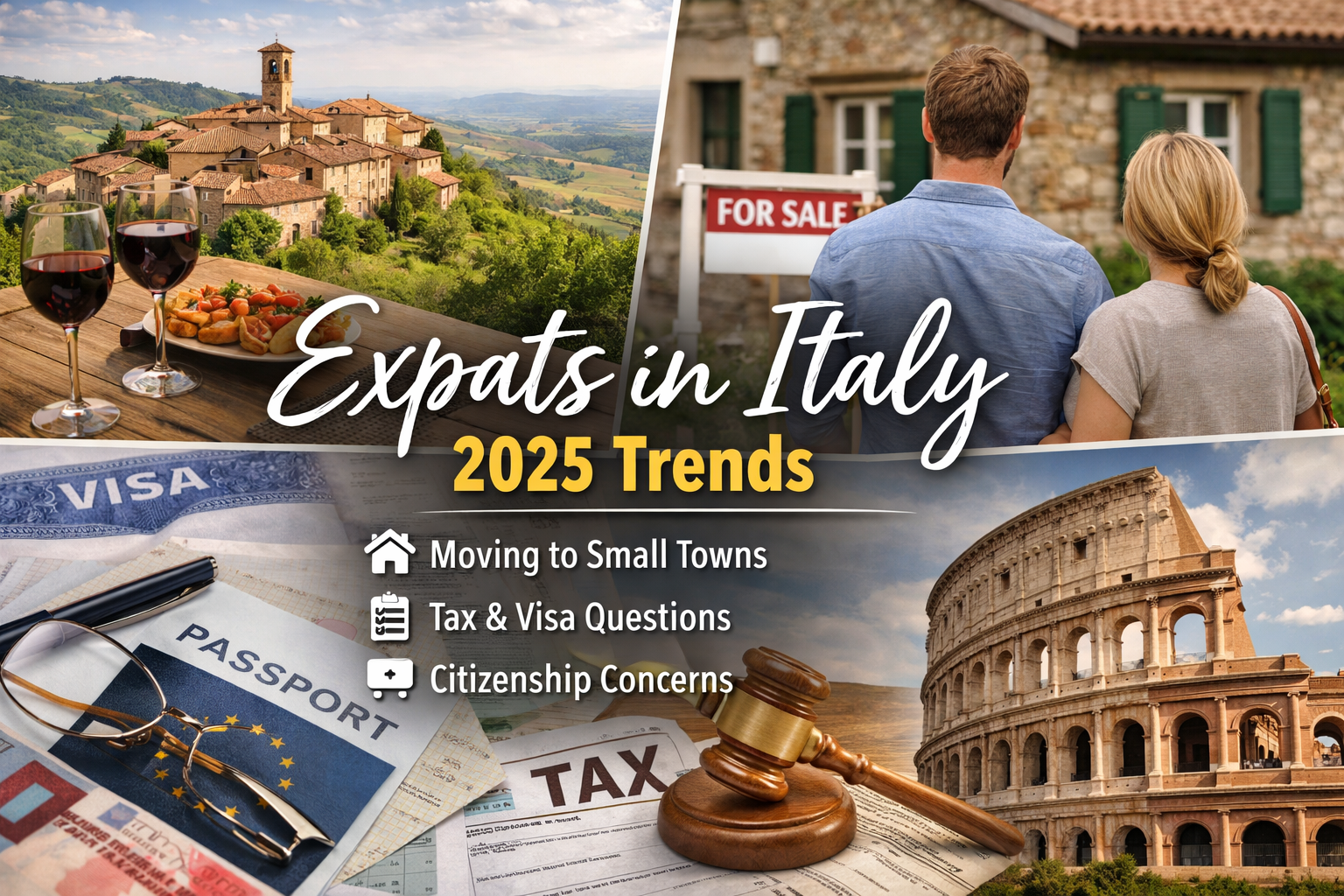Understanding Salaries in Italy: A Guide for Expats and Newcomers (2025)
by Adriana ruiz
If you’re an expat living in Italy or someone considering relocating, understanding the salary landscape remains a crucial element in planning your life in the country. This article provides an overview of average salaries in Italy, how they vary by profession, age, gender, education, and region, as well as how they compare to other European nations. Please note that while we strive for accuracy, data for the entirety of 2025 is still emerging, and these figures represent the latest available information and projections.
Average Salary in Italy
Early data and forecasts for 2025 suggest a slight upward trend in nominal wages. The average gross annual salary (RAL) in Italy for private sector employees is estimated to be around €30,800 – €31,500. However, salaries continue to exhibit significant variations based on the specific role:
• Executives: Likely to maintain high earnings, potentially averaging above €105,000.
• Managers: Expected to see a slight increase, possibly averaging around €56,500 – €57,500.
• Office Employees: A modest rise is anticipated, with averages potentially reaching €32,500 – €33,500.
• Manual Workers: Gradual increases are expected, potentially bringing the average to €26,000 – €26,800.
Net salaries (after taxes and deductions) continue to vary depending on the number of monthly payments (13 or 14) in a year and individual tax situations. Based on the projected gross figures, a manager might take home approximately €2,700 – €2,800 net on a 13-month plan, while an executive could earn around €4,550 – €4,650 net. Office employees and manual workers might typically see net monthly salaries in the range of €1,850 – €1,950 and €1,550 – €1,650 respectively.
Public vs. Private Sector Pay
The trend of public sector workers earning slightly more on average than their private sector counterparts is expected to persist in 2025. The average gross annual salary in the public sector is projected to be around €37,500 – €38,500.
Top-Paying Professions and Industries
Highly skilled sectors are anticipated to continue leading in terms of salary:
• Banking and Financial Services: Average salaries are likely to remain high, potentially exceeding €47,000 – €48,000.
• Engineering: With strong demand, average salaries could rise to over €41,000 – €42,000.
• Pharmaceuticals and Biotech: This sector is also expected to maintain high earning potential, possibly averaging above €40,000 – €41,000.
• Information Technology (IT): The tech industry continues to be a strong performer, with average monthly salaries for skilled professionals ranging from €3,000 to €3,700.
Conversely, sectors such as personal services, hotels, and restaurants are still expected to have lower average wages, reflecting the demand for specialized skills and the nature of the work.
Salary by Age
The pattern of salaries increasing with age, albeit at a slowing rate over time, is projected to continue:
• 15-24 years: Average annual salary potentially around €25,000 – €25,500.
• 25-34 years: Could see an average in the range of €27,500 – €28,500.
• 35-44 years: Might average between €30,000 – €31,000.
• 45-54 years: Potentially reaching an average of €32,500 – €33,500.
• 55-64 years: Could see averages around €34,500 – €35,500.
Regional Salary Differences
The geographical disparity in salaries between Northern and Southern Italy is expected to remain significant, with a gap of around 13-15% anticipated.
• Highest Salaries: Lombardy, Lazio, and Liguria are projected to continue offering the highest average salaries, with Lombardy potentially averaging around €34,000 – €35,000. At the provincial level, Milan, Trieste, Rome, and Bologna are likely to remain at the top.
• Lowest Salaries: Regions like Basilicata, Calabria, and Puglia are expected to maintain the lowest average salaries, potentially ranging from €26,500 to €27,800 annually. Matera, Crotone, and Ragusa will likely remain at the lower end of the provincial scale.
Comparing Italy with Europe
Italy’s average salary is still expected to be slightly below the overall European Union average. While countries like Luxembourg, Denmark, and Ireland continue to have average salaries exceeding €50,000 per year, Italy’s wage growth is projected to be more gradual.
Salary Growth and Real Wages
Following the projected recovery in 2024, real wage growth (adjusted for inflation) is expected to continue in 2025, although the precise full-year figure is yet to be determined. Current forecasts suggest a continued positive trend, which is crucial for maintaining living standards amidst potential inflationary pressures.
Education and Salary
The strong correlation between educational attainment and earning potential is expected to persist. Individuals with university degrees, particularly in high-demand fields such as Economics, Engineering, Medicine, Pharmacy, and increasingly, Computer Science, are projected to earn significantly more than those with lower levels of education – potentially still around 2.5 times more than those with only a middle school education.
Gender Pay Gap
Italy continues to grapple with the gender pay gap, particularly in the private sector, where it is expected to remain a significant concern, potentially still around 16-17%. The public sector, however, is likely to maintain one of the lowest gender pay gaps in Europe, around 4-5%. The average annual earnings for men are projected to remain higher than those for women.
Factors Influencing Salaries
The key factors influencing salary levels in Italy are expected to remain consistent:
• Location: Northern regions and major metropolitan areas will continue to offer higher wages due to economic activity and industry concentration.
• Industry: Highly specialized and in-demand sectors will continue to command higher salaries.
• Education: Higher levels of education and specialized skills will translate to increased earning potential.
• Experience: Years of professional experience will continue to be a significant factor in salary progression.
Hourly Wages and Cost of Living
Estimates for the average hourly wage in Italy in mid-2025 are around €12 – €12.50, but this varies considerably by sector and job type. The cost of living continues to be a significant factor, particularly in major cities like Milan and Rome, where expenses can be considerably higher than in smaller towns, especially in the south. While southern towns generally offer a lower cost of living, they also tend to have lower average wages.
Minimum Wage Considerations
As of May 2025, Italy still does not have a statutory national minimum wage. Wage floors are primarily determined through collective bargaining agreements at the sector level. Discussions regarding the introduction of a national minimum wage are ongoing at the political level, but no nationwide law has been implemented yet. The informal minimum wage established by these agreements often falls in the range of €7 – €9 per hour, depending on the industry and role.
In Summary
Salaries in Italy continue to exhibit considerable variation based on a multitude of factors, including location, profession, education, and experience. While a modest upward trend in nominal wages is anticipated for 2025, expats and newcomers should conduct thorough research into the specific salary ranges for their profession and the cost of living in their intended region. Understanding these nuances is crucial for making informed decisions about their financial well-being and overall quality of life in Italy.
Subscribe to our newsletter to access content and updates to help navigate life as an expat in Italy. If you need help with your citizenship process, language courses, or general expat life in Italy, email us at [email protected].

What’s On in Italy: January 2026 Events Expats Will Love
January in Italy may be quieter than the summer months, but it’s packed with culture, tradition, fashion, and great opportunities to explore without the crowds. From iconic festivals and fashion weeks to free museum days and winter food experiences, here are 12 events happening across Italy in January 2026 that expats shouldn’t miss. 🔥 Fòcara […]

The Year Italy’s Expat Landscape Shifted
Italy’s expat community experienced notable changes in 2025. While metropolitan hubs like Rome and Milan remain magnets for international residents, the most striking trend has been the surge of expats relocating to smaller Italian towns—many with populations under 20,000. For many, this shift reflects affordability concerns, evolving lifestyle priorities, and the changing policy environment around […]

How to Navigate the Property Search and Purchase Process in Italy
Looking to buy property in Italy? We are here to help you step by step! Have you always dreamed of owning a home in Italy—whether it’s a charming countryside farmhouse, a coastal villa, or a cozy apartment in a historic town? We’re here to help turn that dream into reality. Buying real estate in […]

New Year’s Eve Free Concert 2026 in Rome at Circo Massimo
Rome is getting ready to welcome 2026 with an unforgettable night of music, energy, and spectacle. With the support of RDS 100% Grandi Successi, Roma Capitale has officially announced the highly anticipated New Year’s Eve Concert 2026, taking place on December 31st starting at 9:00 PM in the iconic setting of Circo Massimo, one of […]
What’s Quietly Changing in Italy (and What You Should Check)
Italy did not overhaul immigration overnight—but several updates have shifted how things work behind the scenes. Some affect people already living here, others impact those applying from abroad, and a few could catch you off guard if you rely on outdated advice. Nothing here is panic-worthy, but all of it is worth checking before a […]

Single Female Travelers in Italy: Practical, confident, and connected
Rome rewards curiosity and courage. This guide offers grounded tips, cultural insight, and community support so you can explore with confidence—day and night, solo and on your own terms. Start with confidence “Solo doesn’t mean alone.” In Rome, you’ll find friendly locals, layered history, and a vibrant expat network. A little preparation goes a long […]

Christmas in Italy 2025: A Magical Season for Expats Across Italy
Christmas in Italy isn’t just a holiday — it’s a season full of history, flavor, celebration, and heartfelt traditions that bring families, towns, and entire regions to life. Whether you’re an expat experiencing your first Italian Christmas or a returning fan of the magic, 2025 promises some beautiful celebrations across the country. Here’s what to […]

Tax Residency Incentives in Italy — Your Guide (2025)
Italy offers several tax incentives designed to attract retirees, entrepreneurs, high-net-worth individuals and remote workers. These regimes can be extremely generous — but they are complex and often conditional. This guide explains the main options in 2025, who qualifies, and how we can help you plan a compliant move. Why Italy Offers Tax Incentives Italy […]




